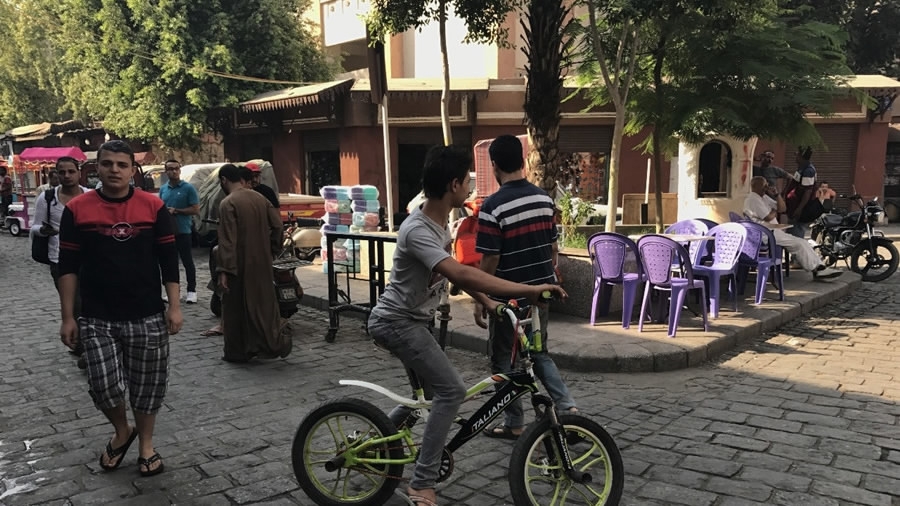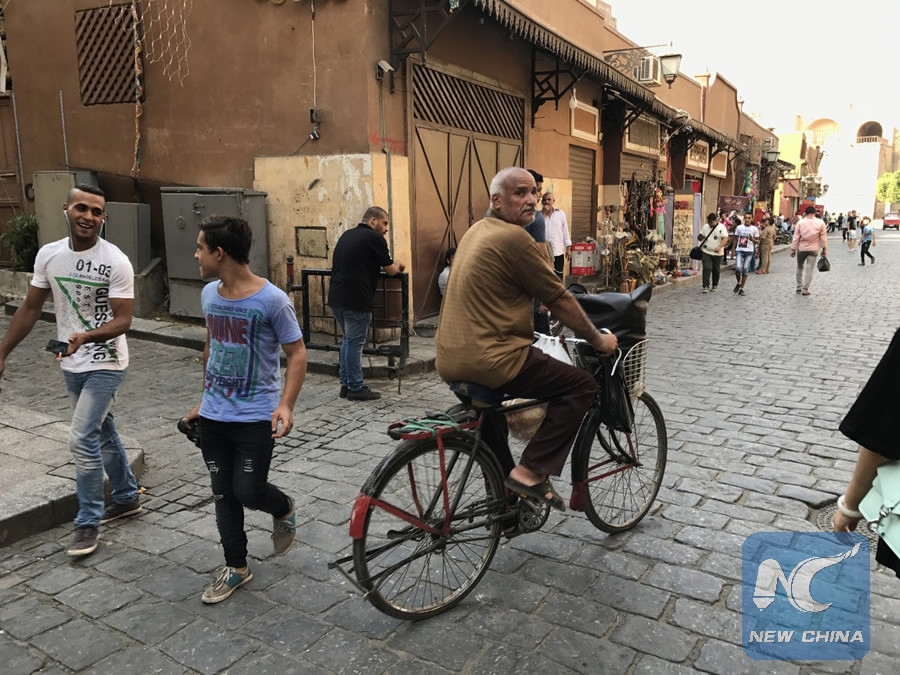
Culture
21:58, 01-Sep-2017
Cairo adopts 1st bike-sharing program to ease unbearable traffic
CGTN

As one of the biggest cities in the world, Cairo is known as being densely populated with unbearable traffic congestion that requires out of the box solutions.
Bicycle, an affordable and environmentally friendly means of transportation, could work as an efficient measure to develop the urban transport system in the capital.
Egypt in July signed a protocol with the UN Human Settlement Program introducing for the first time a bike-sharing system to connect cyclists through bike lanes, all over Cairo.
"It is really a great idea that will save money and time," said Moustafa el-Naggar, a 24-year-old sales representative in a medical center in the capital's well-to-do district of Maadi.
It would save hours of his day if the government builds some bike-sharing stops near the major metro stations, el-Naggar said.
"After stepping out of the underground, I can tour Maadi district by bike and finish my work, then come back to take the metro again to downtown Cairo," he said.
Cairo is home to 20 million people, two million cars and 23,600 miles of roads. Terrible traffic jams give rise to the constant social contacts through open windows: trading insults, cigarettes and small talks.
"It would be an amazing idea to accomplish my work easily and freely without the regular pressure of traditional transportation," the young man said.
The project, known as "Bicicletta," will channel 30 million Egyptian pounds (1.7 million US dollars) for the next three years to the bike-sharing project in Cairo.
The first phase of the project, funded by Zurich-based nonprofit Droses Foundation, will focus on constructing bike-sharing stations in downtown Cairo, according to the Governor of Cairo Atef Abdel Hamid.
He explained that the bike-sharing project is a service that makes bicycles available to individuals to borrow from point A and return it to point B.
It is the first project of its kind in the Middle East, the governor added.

Egypt has signed in July a protocol with the UN Human Settlement Program introducing for the first time a bike-sharing system to connect cyclists through bike lanes, all over Cairo. /Xinhua Photo
Egypt has signed in July a protocol with the UN Human Settlement Program introducing for the first time a bike-sharing system to connect cyclists through bike lanes, all over Cairo. /Xinhua Photo
"A total of 300 bikes will be provided at multiple stations, with a proper selection of the locations to allow easy access to the underground and the bus stations," Abdel Hamid added.
"I hope the rental prices for the bikes would be kept low so the young people can easily pay for it," said Mahdy Orabi, a 21-year old student at Helwan University.
He said he used to ride his own bike, which he bought with 2,500 Egyptian pounds (141 US dollars), to commute between his house in Maadi and his university in Helwan province.
However, the problem for Orabi and most of the cyclists is the roads' poor maintenance and safety which could cause lots of accidents.
"Cycling is not all about easing traffic, it shapes our bodies, a very healthy mean for accomplishing our daily tasks, and keeps the environment clean after the air pollution reached critical levels in the capital," Orabi added.
A report by the World Health Organization in 2012 showed more than 43,000 Egyptians died from diseases related to air pollution like acute respiratory infections and lung cancer.
The report added that Cairo has the second highest rate of air pollution among the major cities in the world, noting that automobile emissions in the capital are considered the primary sources of local air pollution.
An university student said that "the culture of cycling is growing in Egypt in particular among the young people who want to avoid the unbearable traffic jam."
"I wish the capital will apply the same successful bike-sharing model as some other countries to save energy, fuel and street congestion," said Mahmoud Allam, former Egyptian ambassador to China.
According to Metrobike agency's report, a total of 855 cities across the world had bike-sharing schemes in 2014. Currently, an estimated 10 million bicycles are shared in over 100 cities in China, where the bike-sharing business has been growing rapidly in recent years.
"Bike-sharing has human and cultural dimensions: it is the best way to enhance the beauty of any city," Allam said.
"Riding the bike, I was happily exploring the Chinese streets, squares and small alleys which helped me to learn about the people," the ambassador added.
Source(s): Xinhua News Agency

SITEMAP
Copyright © 2018 CGTN. Beijing ICP prepared NO.16065310-3
Copyright © 2018 CGTN. Beijing ICP prepared NO.16065310-3